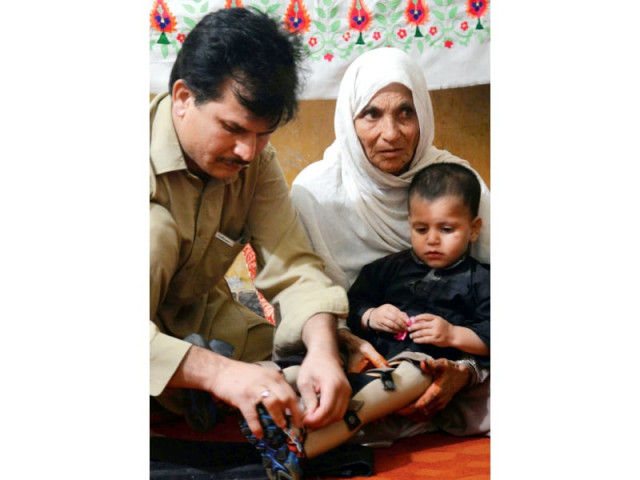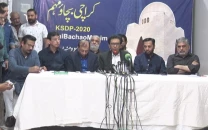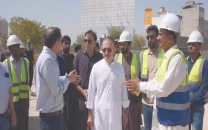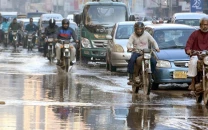World Polio Day: The desperate struggle of polio ‘martyrs’
Despite notable progress, the fight against the crippling disease remains a daunting one

Nadia Khan treasures two photos of her sister Sumbal: one showing her bright-eyed and smiling, the other blank-faced in death after she was gunned down by militants.
It was May 2013. Sumbal and her friend Shirafat were vaccinating children against the disease at a rough mudbrick house in Badaber. Suddenly a motorbike pulled up and the man on the back opened fire, killing Shirafat on the spot and putting 18-year-old Sumbal into a coma.
For 10 days Nadia kept a bedside vigil, to no avail.
“I remember her last moment when she lost her breath,” Nadia recalled. “She could not talk. We wished that at least she could have had last words with us before passing away.” Pakistan is one of only three countries, along with Afghanistan and Nigeria, where polio is still endemic. Efforts to stamp it out have been badly affected by attacks on vaccinators like Sumbal.
In the 2000s the country looked on course to wipe out polio after a series of vaccination drives brought the number of cases down to just 28 in 2005, from more than 18,000 in 1993, according to Unicef data. But from 2008 the epidemic rebounded and hit a 15-year high in 2014, with 210 cases – 80% of all the polio cases in the world.
A Taliban ban on vaccination in North and South Waziristan tribal areas, on the Afghan border, has left hundreds of thousands of children unprotected from the virus.
Since December 2012, at least 30 polio vaccinators have been killed in the country, along with nearly 30 police and security personnel guarding them.
Like Sumbal, Nadia too takes part in vaccination drives, but after her sister’s murder their parents begged her to quit. “I told them that I will continue my sister’s mission and will keep on working until I complete it,” she said.
The other victim of the attack, Shirafat Bibi, was gunned down just a few weeks before she was to be married. She had carefully saved the $6 a day she earned for giving out polio drops to pay her dowry.
That fateful morning, after getting a call to vaccinate some children near her home, the 28-year-old embraced her mother Gul Khubana, who pleaded with her to stay at home. “I told her that day not to go, even her father told her, but she said ‘It will be my last visit and then I will quit this job’,” Khubana said.
After her death, the family was paid compensation and Shirafat’s brother Bilal was taken on by local authorities to do the same job. Now it is Bilal who swallows his fear and tours poor villages on what the health teams in the area call the ‘jihad against polio’.
The health workers and police guards killed in the fight against polio are hailed as ‘martyrs’. They work at the mercy of fate, just as the main victims of polio, the children left unvaccinated.
A year ago, little Shakirullah used to run happily around his neighbourhood in Peshawar, but then at the start of the year the diagnosis came like a hammer blow: polio. The disease has left his legs flaccid and useless, and now, aged just two and a half, he can no longer stay upright without support.
“Other children can play but our poor little boy can only crawl,” laments his uncle Rafiullah.
Already this year, 350,000 children in the country’s northwest have missed out on vaccination because of the perilous security situation, according to local authorities. Even in the cities, resistance remains. Last week in Peshawar, 10% of children visited by vaccination teams refused the drops.
The UN says Pakistan has made ‘notable progress’ in the fight to halt polio transmission, but the struggle remains a daunting one.
Published in The Express Tribune, October 25th, 2014.



















COMMENTS
Comments are moderated and generally will be posted if they are on-topic and not abusive.
For more information, please see our Comments FAQ